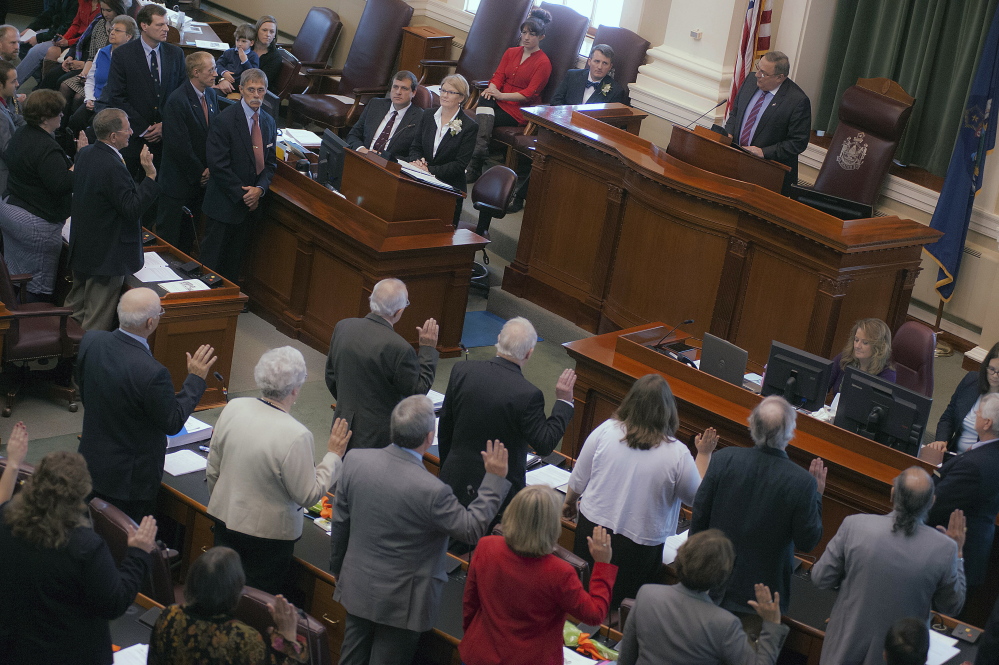Wealthy individuals, special interests and industrial lobbies will be doing everything they can this political season to influence our choices.
Too bad that much of the time, we won’t know who they are.
So-called “dark money,” or anonymous donations behind the TV ads and mailers that bombard us in the weeks before Election Day, has grown dramatically in the eight years since the Supreme Court’s Citizens United case. When donations are filtered through innocent-sounding groups, we end up knowing little about what the source is hoping to get for their money in this transaction.
While most of the discussion about the dangers of dark money has focused on the federal level, the real impact may be in state races, where relatively small amounts of money, spent at the last minute, can make a big difference in a race where voters know much less about the candidates than they know about the people running for president.
It’s also a way to carry the day in a referendum, where a business with a direct financial interest in the outcome can hide behind an innocuous-sounding organization with a name like “Neighbors for Neighborhoods” and conceal their motive for getting involved.
A recent study by the Brennan Center for Justice looked at outside groups’ involvement in elections in six states, including Maine, and found that there a dramatic increase in dark money spending that increases every election cycle.
In Maine, it jumped from just $16,000 in 2006, the last election before the Citizens United decision, to $1.6 million in 2014. Nationally, the center says that three times as much has been spent by outside groups so far for the 2016 election than at a comparable period in 2012.
Does it matter? Of course it does.
Every day, we evaluate the information that we hear based on its source. We are impressed when someone speaks against their self-interest. We don’t treat an opinion about a used car offered by a salesman on the lot in the same way as one that came from our neutral next-door neighbor – even if it’s the same opinion. The context of the information is so important that courts give special weight to a witness’ immediate response to a shocking event, or the last words of someone who is dying.
Who tells us something can be as important as what they say. Except when it comes to politics, where we are forced to listen to the message without knowing the messenger.
It’s the shady system given to us by the Supreme Court.
In Citizens United, the court said that super PACs can spend without limit on “electioneering communications” as long as they do not coordinate with campaigns. Donors to super PACs are disclosed under federal law, but often the donations come from politically active nonprofits, called “social welfare organizations,” which can give to the super PACs without limit and do not have to say where their money comes from.
A new Maine law, approved by the voters last fall, will require outside groups to list the identity of their top three donors on their advertisements. But the statute cannot pull the veil back far enough if the donations come from groups with such opaque finances.
This will be a serious problem in Maine, where voters will elect an entire Legislature and decide five different referendum questions on the ballot. No political ideology has a monopoly on virtue when it comes to campaign spending. There will be special interest money from both the right and the left.
This is where the Supreme Court’s “free speech” ruling has left us. It will be up to voters and the news media to work through the layers of obfuscation and consider the source of the information that we will be hearing as Election Day approaches.
Copy the Story LinkSend questions/comments to the editors.



Success. Please wait for the page to reload. If the page does not reload within 5 seconds, please refresh the page.
Enter your email and password to access comments.
Hi, to comment on stories you must . This profile is in addition to your subscription and website login.
Already have a commenting profile? .
Invalid username/password.
Please check your email to confirm and complete your registration.
Only subscribers are eligible to post comments. Please subscribe or login first for digital access. Here’s why.
Use the form below to reset your password. When you've submitted your account email, we will send an email with a reset code.